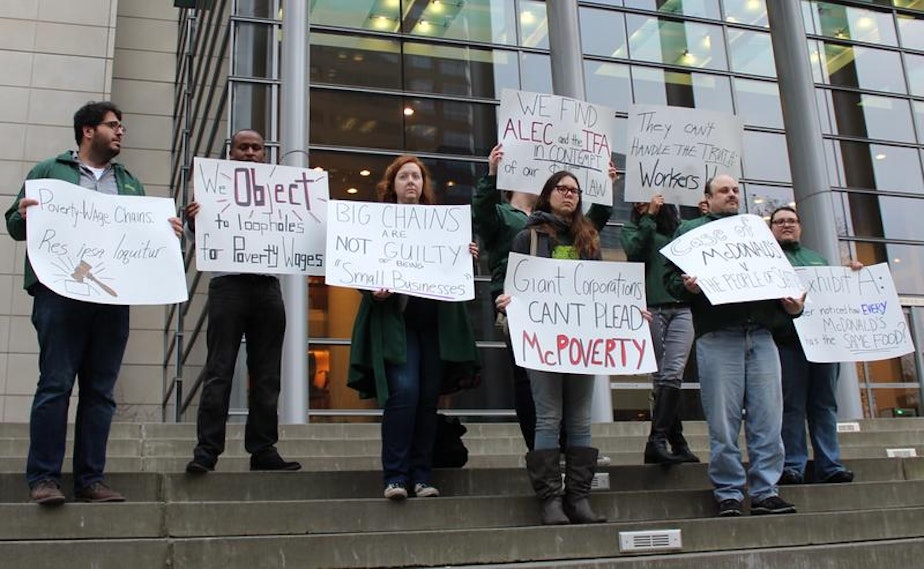$15 Minimum Wage Wins First Test In Court

A lawsuit against Seattle’s new $15 an hour minimum wage has failed its first test in court.
Lawyers for the International Franchise Association (IFA) and five local franchisees have sued the city, arguing the law discriminates against franchise businesses.
The group was seeking to bar portions of the law from taking effect on April 1, when the minimum wage in the city is scheduled to rise to $11 an hour.
But yesterday, U.S. District Judge Richard Jones denied the request for a preliminary injunction. In a 43-page decision, he rejected every legal argument put forward by the plaintiffs.
Attorneys for the IFA had argued, among other things, that the law violates the Commerce Clause, the Equal Protection Clause and the 1
Sponsored
st
amendment of the U.S. Constitution.
The franchise association vowed Wednesday to keep fighting for franchises.
“The ordinance is clearly discriminatory and would harm hard-working small business owners who happen to be franchisees,” IFA President Steve Caldeira said.
The new law phases in a $15 hourly minimum wage in Seattle over a period of years.
Sponsored
Big employers will have to reach $15 by 2018. Small businesses will have a longer phase in.
Franchisees are typically small, locally-owned businesses, but the new law considers them big businesses because of their connections to larger national franchise networks.
Although Jones denied the injunction, the lawsuit against the city will proceed, with an expected trial date in October.
Following Jones' decision, Seattle Mayor Ed Murray called it a great day for food franchise workers.
"We must remember that the ongoing movement for wage equality in our nation was led by fast food workers from large franchise restaurants,” he said. “Their actions sparked a national conversation about growing wage gaps."

